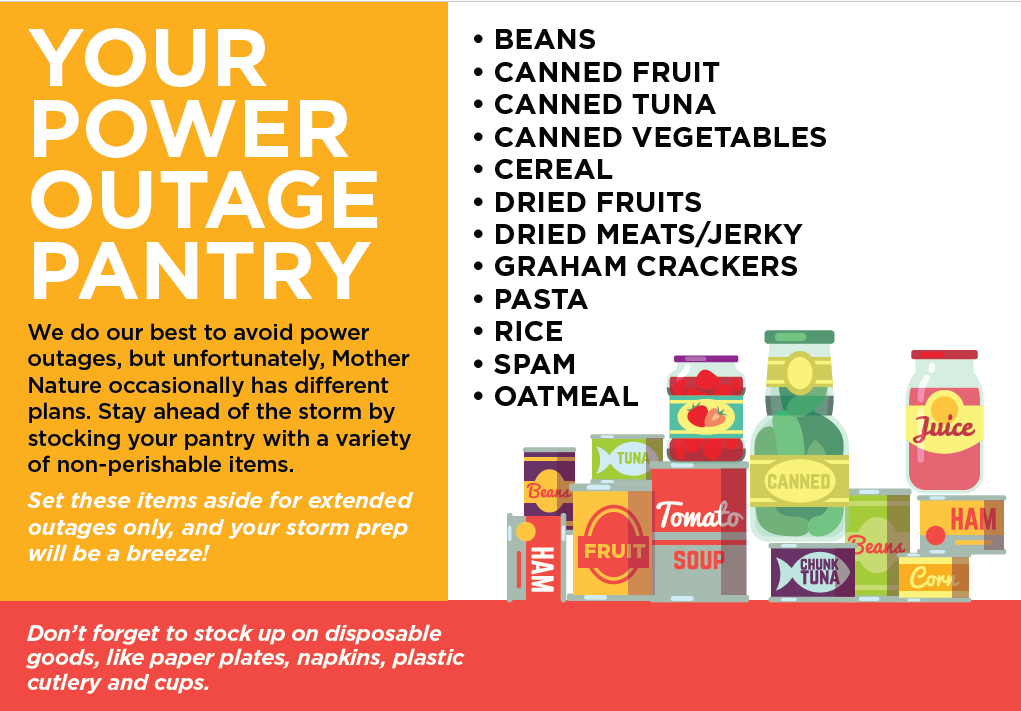Burke-Divide Electric Cooperative strives to provide you with reliable, uninterrupted service every day of the year, but sometimes Mother Nature creates unavoidable power outages. Your electric cooperative wants you to remain safe during severe winter weather, so consider preparing now for the possibility of winter storms.
OPERATE GENERATOR SAFELY
If your standby electric generator has been in storage since last winter, make sure it is still operating properly – before an outage occurs.
And always follow the manufacturer’s recommendations on how to use your generator. Most important is the transfer switch that disconnects the farm or home from the power line and connects it to the generator. It must be a double-throw transfer switch, which prevents the generator from feeding electricity back onto the power line. This protects the lineworkers who may be working to restore your service.
Other generator safety tips include:
- Generators should be located at least 20 feet from any window, door or vent and in a space where rain and snow will not reach them.
- Protect yourself from carbon monoxide (CO) poisoning by installing a battery-operated CO detector.
- Never use generators, gas or charcoal grills, camp stoves or similar devices inside your home, in basements, in garages or near windows. The fumes are deadly.
- Plug in appliances to the generator using individual heavy-duty, outdoor-rated extension cords.
- Do not use the generator or appliances if they are wet.
DURING A POWER OUTAGE
- Only use flashlights for emergency lighting. Candles can cause fires.
- Keep refrigerator and freezer doors closed. Most food requiring refrigeration can be kept safely in a closed refrigerator for several hours. An unopened refrigerator will keep food cold for about four hours. A full freezer will keep the temperature for about 48 hours.
- Never burn charcoal for heating or cooking indoors.
- Turn off or disconnect appliances and other equipment in case of a momentary power “surge” that can damage computers and other devices. Consider adding surge protectors.
BEFORE A POWER OUTAGE
- Build or restock your emergency preparedness kit, including a flashlight, batteries, cash and first-aid supplies and medications. Have a water supply and nonperishable food. Use a battery-operated radio and make sure your cellphone is always fully charged before a storm or make sure you have alternative charging methods for your phone.
- Know where the manual release lever of your electric garage door opener is located and how to operate it.
- If someone in your home is dependent on electric-powered, life-sustaining equipment, remember to include backup power in your evacuation plan.
- Keep a non-cordless telephone in your home. It is likely to work even when the power is out.
WEATHERPROOF YOUR HOME
- Insulate any water lines that run along exterior walls, so your water supply will be less likely to freeze.
- Caulk and weatherstrip doors and windows.
- Insulate walls and attic.
- Install storm or thermal-pane windows or cover windows with plastic from the inside.
- Cut away tree branches that could fall on your home or other structure during a storm.

